As an Industrial-Organizational (I-O) psychologist, I’ve seen firsthand how this fascinating field bridges the gap between human behavior and workplace success. A Master of Science in Industrial Organizational Psychology equips professionals with the tools to enhance employee performance, boost workplace satisfaction and drive organizational effectiveness.
I’m excited to share that this advanced degree program combines psychology principles with business strategies to solve real-world workplace challenges. Whether you’re interested in talent management, organizational development or employee training, an MS in I-O Psychology opens doors to diverse career opportunities. In fact, the Bureau of Labor Statistics projects a 13% growth rate for I-O psychologists through 2028, making it one of the fastest-growing psychology specializations.
Key Takeaways
- A Master’s in I-O Psychology combines psychology principles with business strategies, preparing professionals to enhance workplace effectiveness and employee performance.
- The program typically requires 36-48 credit hours over 2-3 years, with core courses in research methods, organizational behavior, and personnel selection.
- Career opportunities are diverse and lucrative, with median salaries of $97,260 and potential earnings exceeding $153,800 for experienced professionals.
- The Bureau of Labor Statistics projects a 13% growth rate for I-O psychologists through 2028, indicating strong job market demand.
- Program costs range from $21,000 to $65,000, with multiple financing options available including scholarships, loans, and assistantships.
Master of Science in Industrial Organizational Psychology
Industrial Organizational (I-O) Psychology applies psychological theories to enhance workplace productivity performance through scientific research methods. This specialized field focuses on improving employee well-being organizational effectiveness through evidence-based practices.
I-O Psychology encompasses key areas:
- Selecting qualified candidates through validated assessment tools
- Developing training programs to enhance employee skills
- Analyzing workplace behaviors to optimize team dynamics
- Implementing performance measurement systems
- Creating motivation strategies to boost employee engagement
- Designing organizational structures for optimal efficiency
The field combines these core elements:
- Workplace Behavior: Studies how individuals employees teams interact in professional settings
- Employee Development: Creates strategies for professional growth skill enhancement
- Organizational Culture: Shapes company values norms practices
- Performance Management: Establishes metrics systems to evaluate optimize productivity
Research methodologies in I-O Psychology include:
| Method Type | Application | Purpose |
|---|---|---|
| Quantitative Analysis | Employee surveys assessments | Measure performance satisfaction |
| Observational Studies | Workplace behavior analysis | Identify patterns trends |
| Statistical Modeling | Data-driven decision making | Predict organizational outcomes |
| Assessment Tools | Skills personality testing | Evaluate employee potential |
I-O psychologists serve multiple roles:
- Consultants for organizational change initiatives
- Researchers studying workplace dynamics
- Training development specialists
- Human resource strategists
- Performance management experts
- Leadership development coaches
This scientific approach transforms workplaces through data-driven solutions evidence-based practices measurable outcomes.
Career Opportunities With an IO Psychology Master’s
A Master’s in Industrial-Organizational Psychology opens diverse career paths across corporate, consulting, and academic sectors. The U.S. Bureau of Labor Statistics reports a median annual salary of $97,260 for I-O psychologists, with top earners exceeding $153,800.
Corporate HR and Talent Development Roles
I-O psychology graduates excel in corporate positions focused on employee development and organizational effectiveness. Common roles include:
- Talent Management Director managing succession planning and leadership pipelines
- Learning & Development Manager creating evidence-based training programs
- HR Analytics Manager implementing data-driven personnel decisions
- Employee Experience Designer optimizing workplace satisfaction metrics
- Performance Management Specialist developing assessment frameworks
Consulting and Independent Practice
Independent consulting offers flexible opportunities to work with multiple organizations:
- Change Management Consultant guiding organizational transitions
- Executive Assessment Specialist evaluating leadership potential
- Organizational Development Consultant improving team dynamics
- Selection Systems Designer creating hiring frameworks
- Training Program Developer crafting employee development solutions
- Research Scientist conducting workplace behavior studies
- University Professor teaching graduate-level I-O psychology courses
- Research Director leading organizational effectiveness projects
- Assessment Methodology Expert developing measurement tools
- Corporate Research Partner bridging academic-industry collaborations
| Career Path | Entry-Level Salary Range | Senior-Level Salary Range |
|---|---|---|
| Corporate HR | $65,000 – $85,000 | $120,000 – $180,000 |
| Consulting | $70,000 – $90,000 | $150,000 – $200,000 |
| Academia | $60,000 – $75,000 | $90,000 – $130,000 |
Core Curriculum and Course Requirements
A Master of Science in Industrial Organizational Psychology program consists of 36-48 credit hours completed over 2-3 years. The curriculum combines advanced psychological theories with practical business applications through three essential areas of study.
Research Methods and Statistics
Students master quantitative research methodologies through courses in:
- Advanced Statistical Analysis focusing on SPSS ANOVA techniques
- Multivariate Research Methods covering factor analysis modeling
- Psychometric Theory examining test construction principles
- Research Design Methods emphasizing experimental protocols
- Data Analytics using R programming for workplace metrics
Organizational Behavior and Development
The organizational core includes specialized courses in:
- Change Management Strategies for organizational transitions
- Leadership Development focusing on executive competencies
- Team Dynamics exploring group behavior patterns
- Organizational Culture Assessment methods
- Performance Management Systems design
- Motivation Theory applications in workplace settings
- Job Analysis Techniques for position requirements
- Selection System Design using validated tools
- Assessment Center Development protocols
- Employment Testing Standards compliance
- Talent Management Strategy implementation
- Performance Appraisal Methods design
| Course Component | Credit Hours | Duration |
|---|---|---|
| Research Methods | 12-15 | 1 semester |
| Org Behavior | 12-15 | 1 semester |
| Personnel Selection | 12-18 | 1-2 semesters |
Program Formats and Duration
Master of Science in Industrial Organizational Psychology programs offer flexible learning formats to accommodate diverse student needs. Programs typically range from 2-3 years with 36-48 credit hours required for completion.
Online vs On-Campus Options
Online I-O Psychology programs deliver coursework through virtual learning platforms with synchronous or asynchronous class sessions. Students access lectures, assignments, research materials through digital portals while interacting with professors through video conferences, discussion boards, and email. On-campus programs provide face-to-face instruction, direct faculty mentorship and hands-on research opportunities in university facilities.
| Format | Key Features | Time Commitment |
|---|---|---|
| Online | Asynchronous learning, virtual collaboration tools, digital resources | 15-20 hours/week |
| On-Campus | In-person lectures, research labs, faculty office hours | 20-25 hours/week |
Part-Time vs Full-Time Study
Part-time students complete 6-9 credit hours per semester extending program duration to 3-4 years. This format accommodates working professionals by offering evening classes or flexible scheduling options. Full-time students maintain 12-15 credit hours each semester completing the degree in 2 years through intensive daytime coursework.
| Study Load | Credits/Semester | Program Duration |
|---|---|---|
| Part-time | 6-9 credits | 3-4 years |
| Full-time | 12-15 credits | 2 years |
Admission Requirements and Prerequisites
The admission requirements for a Master of Science in Industrial Organizational Psychology program include specific academic qualifications background requirements:
Academic Requirements:
- Bachelor’s degree from an accredited institution with a minimum 3.0 GPA
- Completion of undergraduate psychology courses (15-18 credit hours)
- Prerequisites in statistics research methods
- Coursework in organizational behavior or industrial psychology
Required Documentation:
- Official transcripts from all previous institutions
- Three letters of recommendation from academic or professional references
- Statement of purpose (500-750 words)
- Current resume or CV
- GRE scores (minimum 150 verbal 150 quantitative)
Professional Experience:
- 2-3 years of work experience in HR management training development organizational consulting (preferred)
- Demonstrated leadership roles in professional settings
- Experience with data analysis statistical software
- TOEFL score of 90+ (internet-based)
- IELTS score of 7.0+
- PTE Academic score of 65+
| Application Component | Standard Requirement | Advanced Standing |
|---|---|---|
| Minimum GPA | 3.0 | 3.5 |
| GRE Verbal | 150 | 155 |
| GRE Quantitative | 150 | 155 |
| Work Experience | Optional | 2-3 years |
| Psychology Credits | 15 credits | 18 credits |
- Writing sample demonstrating research capabilities
- Personal interview (in-person or virtual)
- Professional portfolio (for applicants with work experience)
- Background check clearance
- Technology requirements assessment
Cost and Return on Investment
The Master of Science in Industrial-Organizational Psychology program costs between $21,000 to $65,000 for total tuition, varying by institution type and location. Public universities charge an average of $585 per credit hour while private institutions average $925 per credit hour.
| Cost Category | Public University | Private University |
|---|---|---|
| Per Credit Hour | $585 | $925 |
| Total Tuition (36 credits) | $21,060 | $33,300 |
| Total Tuition (48 credits) | $28,080 | $44,400 |
| Additional Fees | $2,500-$4,000 | $3,500-$5,000 |
The return on investment for an I-O Psychology master’s degree manifests through significant salary increases. Graduates experience an average salary jump of 35% within two years of completion.
| Career Level | Starting Salary | After 5 Years |
|---|---|---|
| Entry-Level | $65,000 | $85,000 |
| Mid-Career | $97,260 | $120,000 |
| Senior Level | $125,000 | $153,800+ |
Financial aid options include:
- Federal student loans at 5.28% interest rate
- Merit-based scholarships ranging from $5,000 to $20,000
- Graduate assistantships covering 50-100% of tuition
- Employer tuition reimbursement programs averaging $5,250 annually
- Professional organization grants from SIOP offering $3,000-$10,000
- Initial program cost
- Salary increase potential
- Career advancement opportunities
- Industry demand growth rate of 13%
- Geographic location premium adjustments
MSc in Industrial Psychology
A Master of Science in Industrial Organizational Psychology opens doors to a rewarding career that blends psychology with business innovation. I’ve seen how this degree equips professionals with essential skills to transform workplaces and drive organizational success.
With strong job prospects flexible learning options and competitive salaries I believe this program offers an excellent return on investment. Whether you’re passionate about employee development organizational culture or data-driven decision-making this degree provides the foundation needed to make a meaningful impact in today’s evolving workplace.
I’m confident that pursuing this advanced degree is a strategic choice for those ready to enhance their career and contribute to the future of workplace psychology.



